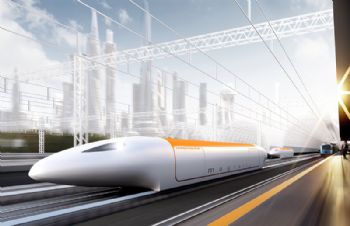
Hyper Poland recently announced the launch of its second funding round on the investment platform Seedrs. The Warsaw-based start-up is looking to raise 452,000 euros to fund continued testing and development of the “next generation of high-speed railways”, based on ‘magnetic levitation, linear motors and autonomous control systems’.
Hyper Poland says it is currently the only company in the world researching such technology; it believes that the gradual implementation of hyperloop-inspired solutions will provide much-needed innovation to the railway industry, “particularly in the face of fierce competition from other means of transport”.
Its goal is to restore the competitive edge of existing railway lines, developing hardware to upgrade their infrastructure to a high-speed and high-frequency standard.
The company’s patent-pending technology is based on a ‘passive magnetic levitation’ train operating on existing conventional railway tracks with speeds up to 300kph (or 415kph on HSR lines).
Moreover, this hybrid solution allows both the mag-rail system and conventional trains to use the same tracks, as railway operators ‘depreciate their existing rolling stock’.
Looking to the future, Hyper Poland (
www.hyperpoland.com says its technology can be transformed into a vacuum hyper-rail system with a top speed of 600kph on existing conventional tracks and 1,000kph on HSR lines, adding that the final stage of this transformation will involve building dedicated tracks to enable the hyperloop to travel at up to 1,200kph.
The company built its first prototype in 2017 and a 1:5-scale test track in 2019; it is now focused on demonstrating the first-full scale prototype in 2020-2021.
Hyper Poland has already obtained a grant of 3.8 million euros from the Polish National Center for Research and Development, plus backing from Microsoft’s global initiative for start-ups (a programme supporting ‘the most promising technology companies in the world’).
Other main partners include Warsaw University of Technology, Transfer Multisort Elektronik and the Railway Research Institute.